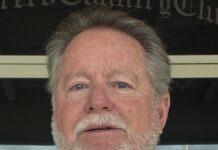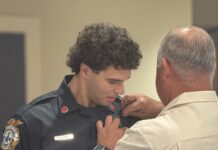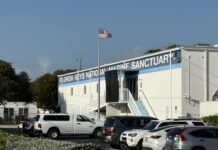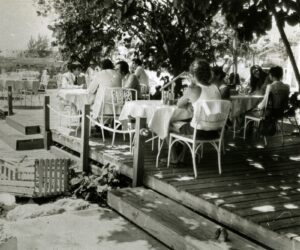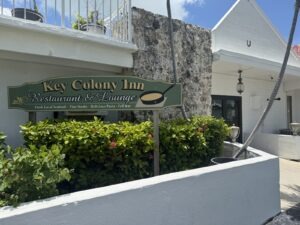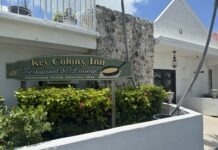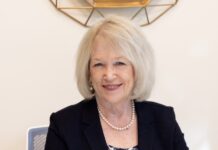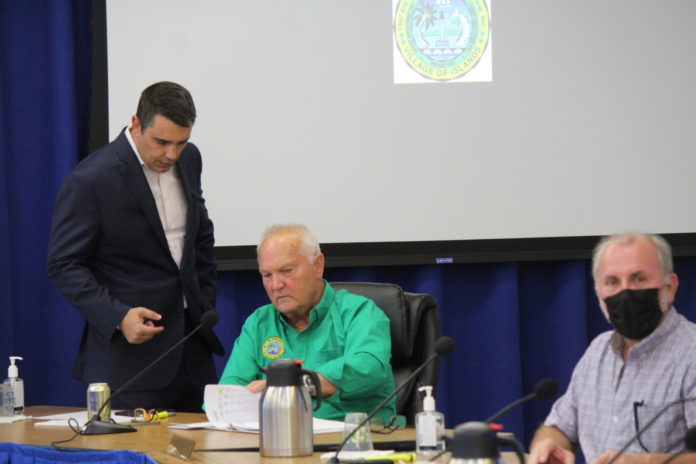
Islamorada Village Council unanimously voted 4-0 on a $47-million spending plan and a millage rate of 3.00 at a final budget hearing on Sept. 19 at Founders Park Community Center.
Council members elected to keep the same millage rate that was approved during the previous 2021-22 budget. But the village will raise roughly $2.3 million more in ad valorem taxes in the 2022-23 budget, totaling $14.6 million, due to an $8-million spike in assessed property values this year. Around $12.3 million in ad valorem taxes was raised within the 2020-21 adopted budget.
Some council members were adamantly opposed to a millage of less than 3.00. They were also against the adoption of a spending plan that used village reserves to balance the budget. Without four “yes” votes, the council could have dropped to a rolled back rate of 2.5449 and a spending plan that would have used $1.6 million in reserves.
Village Manager Ted Yates said the difference between the 3.00 mills and a rolled-back rate of 2.5449 mills is roughly $6.38 on a homesteaded, million-dollar home. “And that’s assuming they’re paying current valuation,” Yates said. As for a nonhomesteaded, million-dollar home, the difference was around $21.
Around 35% of the homesteaded properties in the village are protected by a 3% cap as it relates to annual assessed valuation increases thanks to the Save Our Homes amendment. Caps on nonhomesteaded properties, such as vacation rentals, second or third homes or commercial properties, won’t increase more than 10%.
Councilman David Webb said he was disappointed regarding debate over the controversy of the budget, specifically the “deceit and deception spread by some people to make it look like we’re raising taxes.” A notice required by statute went out to property owners during the budget process, which noted a 17.88% increase above the rolled-back rate. Webb said an overwhelming majority of people in the community are protected by two assessed valuation caps.
“Neither of those numbers approach 17.8% for anybody in our community, yet there are people listening to this meeting and calling to council members panicking because certain members in this community are using deceit and deception to make an illegitimate point,” he said.
Mayor Pete Bacheler said he couldn’t support anything less than 3.00 mills. In his comments, Bacheler recalled the time a village councilwoman tried to get the council to understand the need to have a hurricane reserve fund.
“A hurricane came along and the Keys were really messed up. And guess who didn’t have any money. Monroe County didn’t have any money. Guess who had money? The village of Islamorada,” he said. “We didn’t have any problems getting loans. We could do things right away. We cleared and paid for the streets, the debris and trash pickup. That was all taken care of by the hurricane fund created because one councilwoman maintained that we should not be without it.”
Islamorada resident Joe Ziomek was critical of the council’s tax and spending. He said he’s spoken to councils in the past on zero-based budgeting.
“This is a great democracy. Your guys are all Democrats,” he said. “You know what Democrats do? They tax and spend.
“Zero-based budgeting is (when) nobody has a budget until they submit their new budget,” he continued. “Everyone goes to zero and everyone has to justify what they want in that zero-based budgeting methodically. Zero based budgeting is how you get the change.”
That didn’t sit well with Councilman Buddy Pinder, who said he’s tired of all the negativity, false facts and divide in the community.
“There’s a lot of positive things. Everybody, according to what I see, hear and read, we’re bad people,” he said. “Tonight, Joe, you come and it’s like don’t we do anything right. I was born and raised here. I want to see this place stay a great place to be.
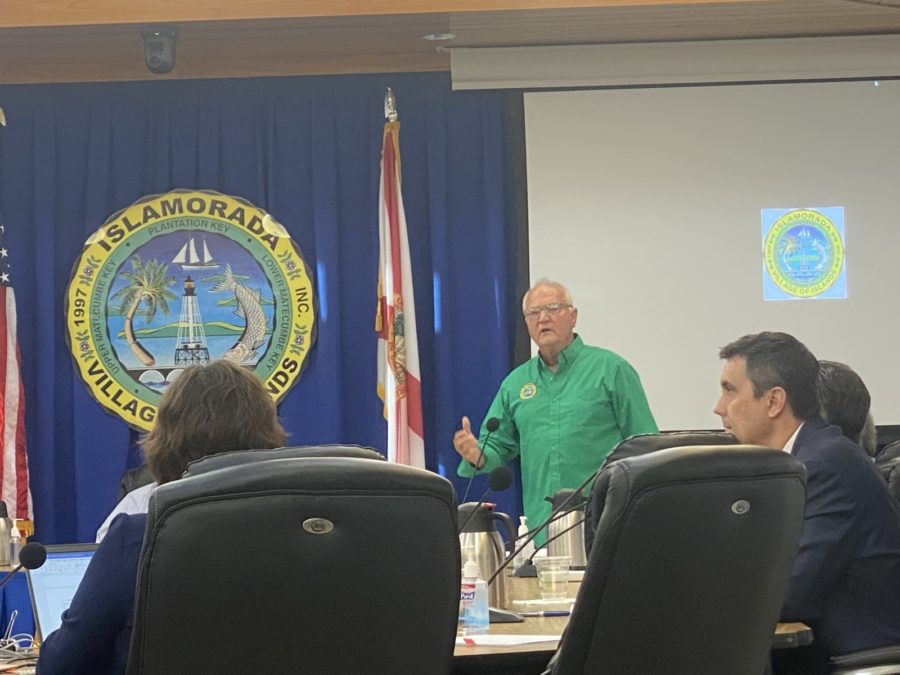
“I feel this council has been one of the more unified councils, including Henry. It’s OK that we can agree that we disagree. I’ve been preaching unity since the day the village came into existence. There’s some people in this community causing major division. I’m not going to name any names. But I’m tired of it.”
Pinder proceeded to stand from his seat to plead for unity within the village.
Vice Mayor Henry Rosenthal was absent from the meeting as he continues to recover in the hospital from an undisclosed injury. He’s expected to make a full recovery.
BUDGET HIGHLIGHTS
Expenses within the general fund, which pays for government operations, for the coming year total $19.3 million. Roughly $8.6 million in expenses come out of the village’s public safety line, with $2.8 million for the Monroe County Sheriff’s Office and $5.8 million for fire rescue. General government expenses, which consist of village council, village manager, finance, planning, code compliance and IT, account for about $5.8 million. Around $1.5 million will go to the capital projects fund for general purchases and landscaping, transportation fund and debt service fund.
To address rising fuel and living costs, village employees making less than $100,000 a year will get a 7% raise in their salaries. Officials making above $100,000 annually will receive a 6% bump in their pay. Village Manager Ted Yates said roughly 70% of the budget is spent on village employees’ salary and benefits.
“Those are the services we provide,” he said.
Councilman Mark Gregg expressed support for employee raises due to rising costs for food, fuel and other living expenses. Gregg also referenced the expense and disruption caused by the turnover that the village has seen in recent times.
“If they don’t get it from us, they’re going to get it from somewhere else because they need it to survive. I also said that it’s far better to pay a little bit more than it is to get the lowest bidder,” he said.
Close to $600,000 will head to the village’s fund balance, which covers expenses from an emergency or other designated uses. The village is keeping around 40% of its fund balance, or $7.7 million, for emergencies and $3.8 million for other uses, bringing the total unassigned fund balance to $12.6 million.
The village is spending roughly $108,000 for lobbying services with GrayRobinson. That contract was approved at a Sept. 15 council meeting. Around $105,000 is allocated for decorations for Founders Park, Hurricane Monument and other village areas during the holiday season. A total of $72,000 is earmarked for year two of a social media pilot project by Attention Media.
The village’s attorney firm Weiss Serota will receive $520,000 for legal and litigation work. The firm has worked on behalf of the council and village since the departure of Roget Bryan on May 20.
A total of $300,000 was budgeted for canal consulting and monitoring by Wood Environmental. As an area of critical state concern, the village must now complete a series of canal restorations. On Sept. 15, council approved an agreement with Wood Environment & Infrastructure, out of Tavernier, to monitor water quality for a project that will install a gravity injection well at Canal 114, located at Tropical Atlantic Shores subdivision on North Plantation Key.
Estimated expenditures in the special revenue account, which include solid waste, transportation, affordable housing and building funds, total $7.5 million. Within the transportation fund, roughly $351,000 is budgeted for the ride-share service Freebee. The company provides free rides for locals and tourists from Lower Matecumbe Key to Tavernier.
Capital project expenses total $14.3 million, debt service expenses are around $828,000 and enterprise fund expenses are around $20.5 million.




